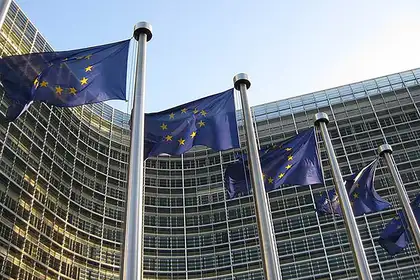
Prime Minister Bill English's recent trip to Europe sparked enthusiastic talk about a potential EU-NZ trade deal.
By Dr Mark Avis
Something rather odd happened during the recent visit of Prime Minister Bill English to Europe. Out of the blue so it seems, the European Union (EU) has become enthusiastic about a trade deal with New Zealand. German Chancellor Angela Merkel was so positive about the prospect of a deal she said she would apply pressure within the EU to progress talks quickly. There is even a discussion of settling a deal within three years. On the face of it, this all looks like good news for New Zealand. However, such a view may be naïve.
One of the first concerns is that, although the New Zealand economy has diversified, agriculture remains one of New Zealand’s most important industries – and this will present a significant challenge to achieving a trade deal that benefits New Zealand. Even a cursory review of the history of the Common Market and the EU will show a consistent policy of protection for EU agriculture from external competition.
The recent EU-Canada Comprehensive Economic and Trade Agreement (CETA) is informative, and I will quote an EU press release: “The CETA deal will not remove tariff barriers for public services, audiovisual and transport services and a few agricultural products, such as dairy, poultry and eggs.”
In addition to these “few” and extremely relevant items, the EU deal also required Canada to comply with the EU system of ‘European geographical indications’ for 140 items. In practical terms, this means that New Zealand producers will not be able, for example, to call feta cheese ‘feta’. Being required to call products by names which are not well-recognised will potentially hamper New Zealand sales and exports.
The EU has been consistent in seeking to protect its agricultural industry from external competition. So, at first glance, it seems odd that it has suddenly developed an interest in a deal with a country such as New Zealand, which has an unusually large agricultural industry and a particularly large dairy sector. But if you consider wider EU issues, it may be apparent why this interest in a trade deal with New Zealand has suddenly appeared at this particular time.

Dr Mark Avis believes New Zealand should proceed cautiously to ensure it gets a good deal, especially for dairy.
Is New Zealand caught up in Brexit negotiations?
The relevant issue is Brexit and the recent announcement by the UK of a ‘hard Brexit’, which means the UK will leave the European Single Market. As part of the hard Brexit strategy, the UK government says it will energetically seek out bilateral trade deals, and this has included very positive opening moves between New Zealand and the UK. Both the UK and New Zealand governments seem enthusiastic.
Set against this, following the UK Brexit referendum result, there was talk in the EU of punishing the UK to encourage other members of the EU not to follow the same route. As the situation stands, the rhetoric of punishment has been dialled back and EU politicians and leaders are taking a softer line. There are several factors that might have changed the approach within the EU.
Firstly, threatening punishment for leaving the EU does not paint a particularly attractive picture of the EU as an institution. Secondly, instead of being at the ‘back of the queue’ for trade negotiations with the United States (President Obama’s threat in the lead up to the Brexit vote), the UK is now at the front of the queue. Thirdly, in the face of threats of ‘punishment’, the UK prime minister has threatened retaliation.
As a significant and important trading partner of many countries in the EU, the threat of retaliation has teeth. Nevertheless, although the rhetoric of punishment has been softened, it is very clear that many politicians in the EU do not want to see the UK make a success of Brexit.
While it impossible to demonstrate one way or another, the sudden EU interest in a trade deal looks suspiciously like it is linked to Brexit. Clearly, a free trade deal for New Zealand with Europe is an extremely attractive option. But the timing of the interest and the EU’s previous history of protecting its agricultural sector should encourage caution from the New Zealand government.
If it is a genuine overture, unlinked to Brexit, then New Zealand would be foolish not to explore the potential benefits. On the other hand, if it is linked to Brexit, the likely result is a deal that continues to block key New Zealand industries from Europe, whilst having a negative impact on a potentially more positive deal with the UK.
My advice to the politicians is to be careful that they do not become a tool to be used in a European diplomatic spat.
Dr Mark Avis is a senior lecturer with Massey University’s School of Communication, Journalism and Marketing. He is a UK national but has committed to New Zealand as his home.